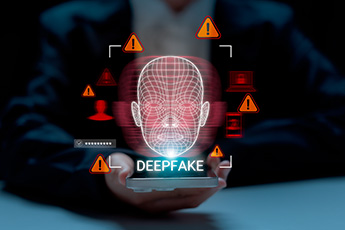Gallup reports 70% of decision-making is from emotions and only 30% is from logical considerations. While we think bankers skew more often to the 30%, the lightning speed of technology sometimes forces you to go more "with your gut." So, today we want to bring you up to speed on the latest use of technology.
MasterCard has a new pilot -- letting customers store digital identities that don't contain personally identifiable information (PII) on their smartphones. This would be done with tokens, showing that the data has been verified by a reliable source. This idea in various forms is certainly swirling around lately, as we recently reported on the development of the digital driver's license (The Coming of Digital ID Cards).
MasterCard is currently testing its digital identity verification service in a pilot program in Australia. The service is built on a platform using a blockchain model that blends information stored on an individual's smartphone and verified by trusted sources, such as their financial institution (FI) or a government agency.
This way, MasterCard doesn't hold PII of millions of people on a centralized database, which would be far more susceptible to fraud. A person's smartphone doesn't have to store their sensitive information either; biometrics and a token demonstrating a trusted source has verified their information is what is needed.
Some countries already have digital identity schemes, but only within their own markets. MasterCard is hoping its platform will be more widely adopted because it will offer "global interoperability" while aligning with various national standards.
Following the pilot in Australia, MasterCard will introduce additional partnerships and pilots across more markets this year. If this is intriguing, you may want to check out the results of the pilots and see what is involved to participate. If it sounds interesting enough to try out, you would then begin to combine each customer's sensitive information that you have already collected to open accounts, into a "data collage" or "data package" to enable each customer to obtain a MasterCard ID.
Customers would then initiate the creation of their MasterCard ID using your institution's mobile app on their smartphone. These individuals can feed in other types of information, like a college degree or a technical certification, and all of the information would then trigger the creation of a digital verification token. That token, along with a fingerprint or another biometric, are the only things stored on the phone.
FIs that participate in MasterCard's service would pay the company a fee to manage the verification network, as would entities that use it to verify identities. These companies can include such things as car rental companies, university admissions departments and others.
Lots of things are in motion as the development of these digital IDs continues. We will continue to keep you up-to-date on it all.




